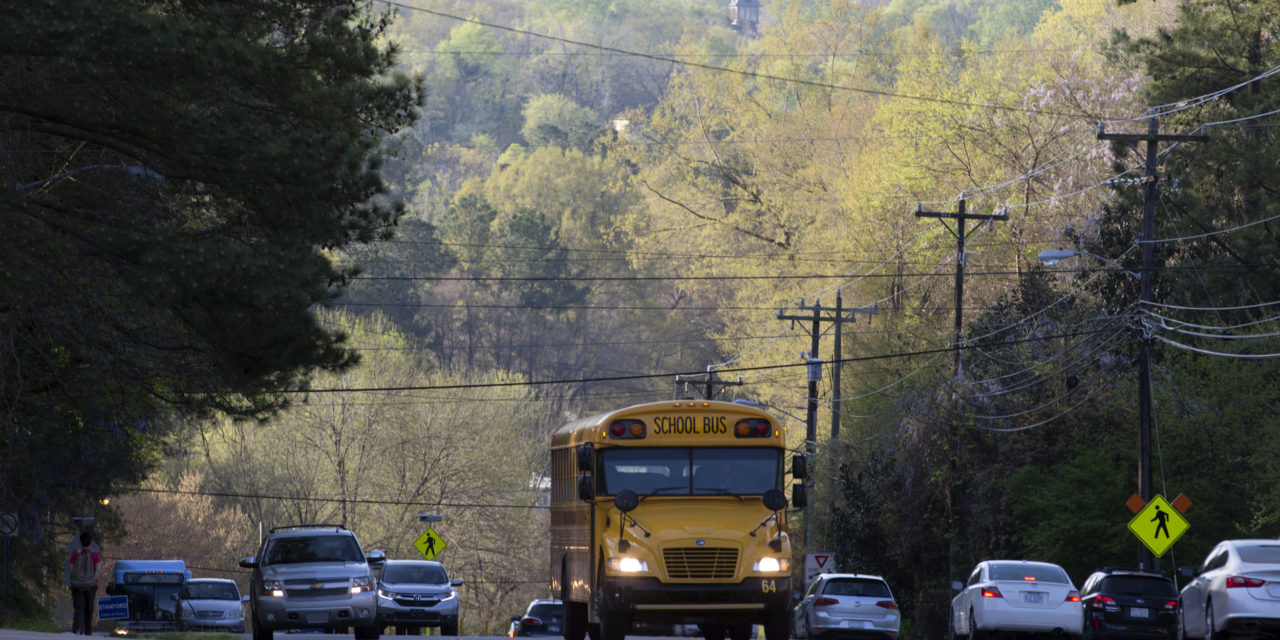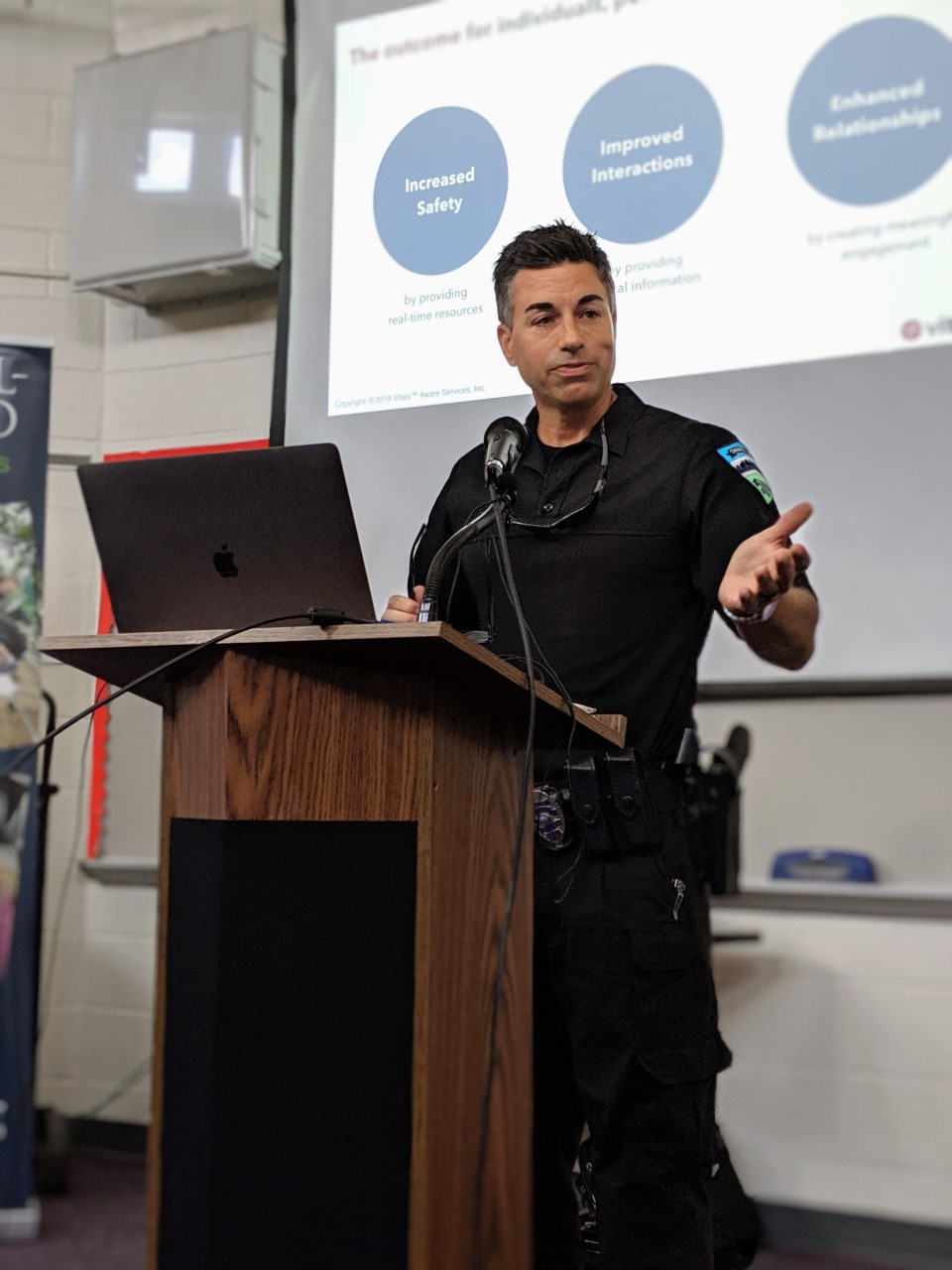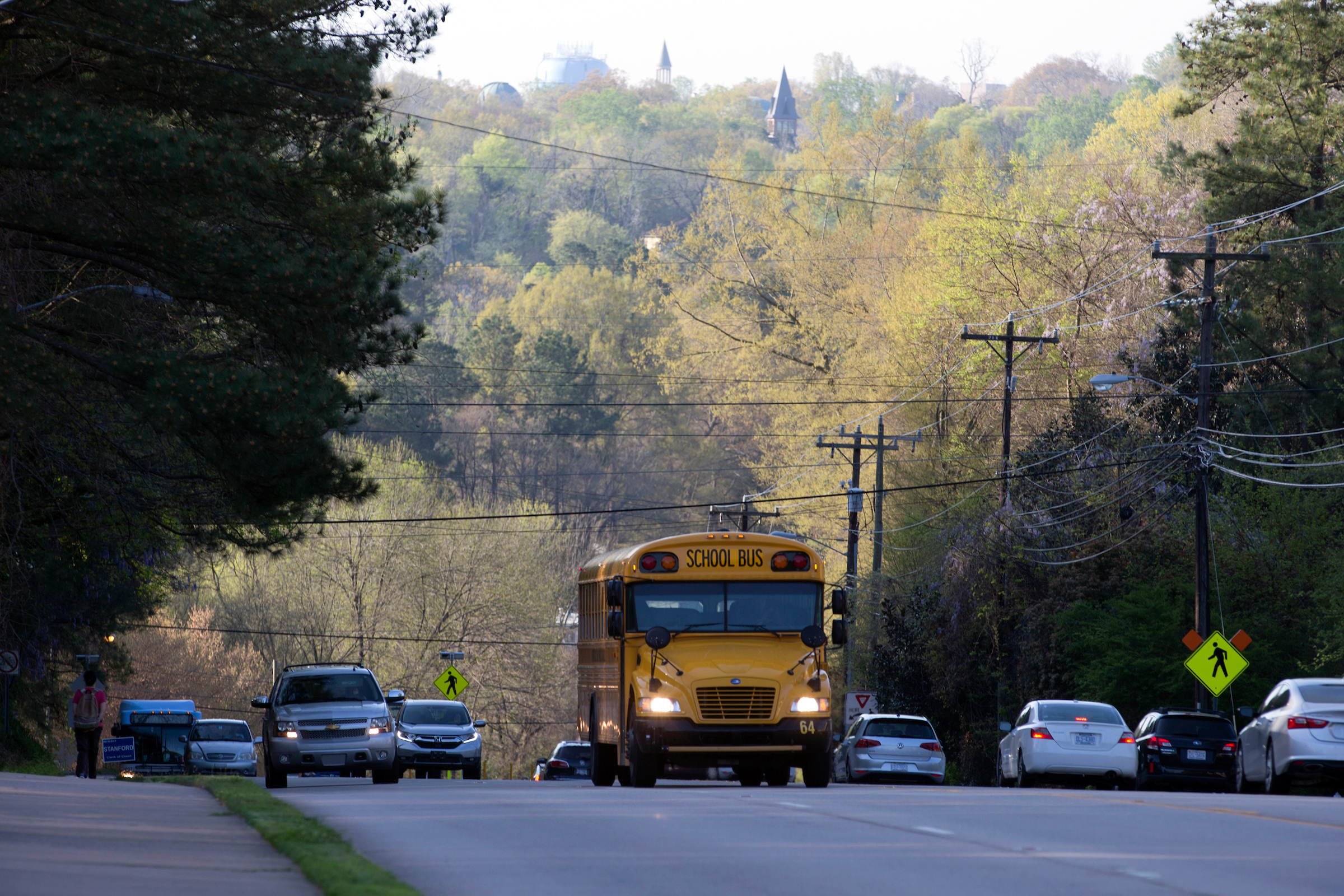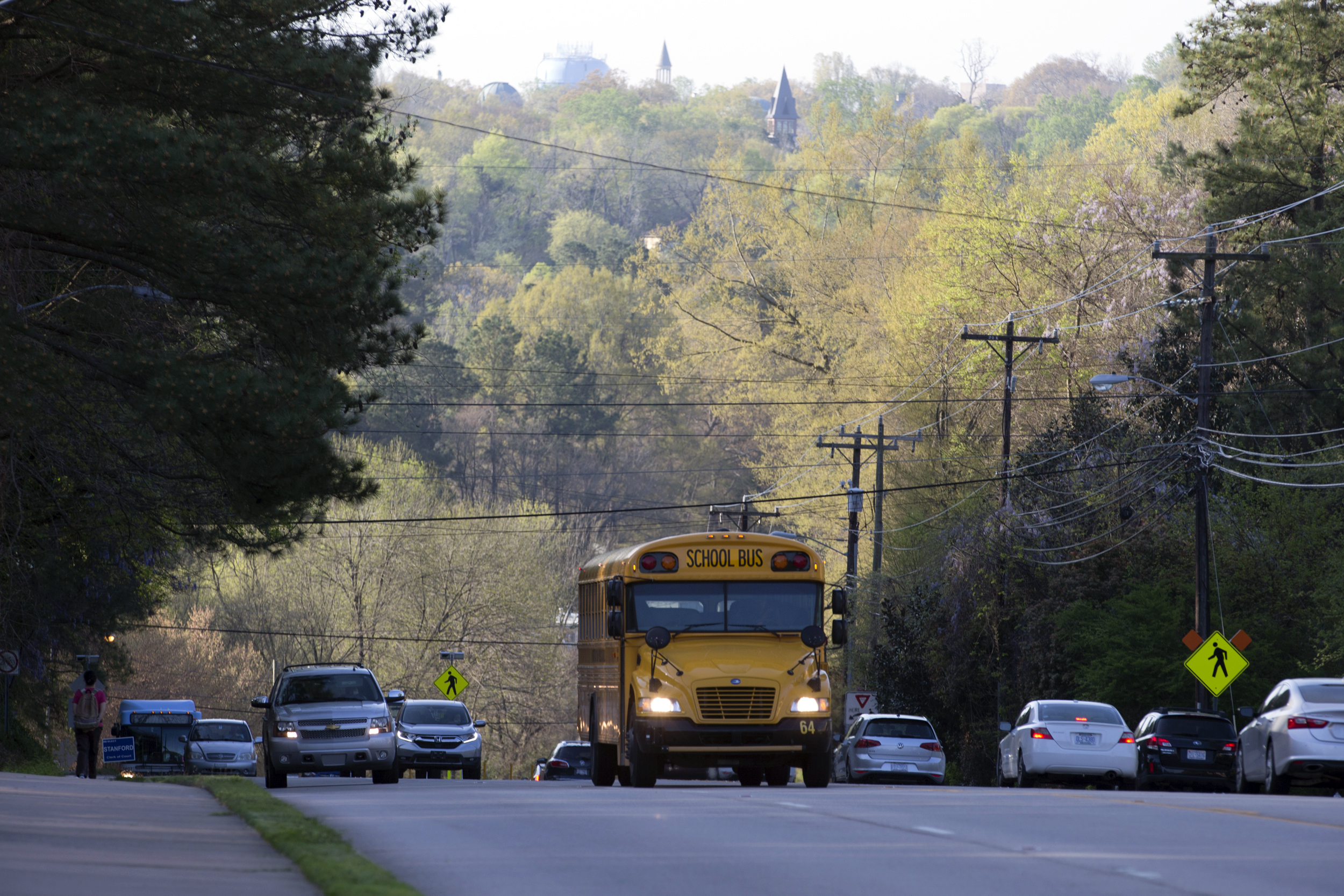The Board of Orange County Commissioners held its annual joint work session with the school boards of local districts on Tuesday.
Commissioners gathered with leadership of Chapel Hill-Carrboro City Schools and Orange County Schools in the Whitted Building Tuesday evening. The session covered some of the most pressing topics facing the county’s schools.
Officials began by addressing the challenges both districts face from the lack of a state budget. As lawmakers in the General Assembly continue a stalemate with Governor Roy Cooper, local school systems cannot give raises to teachers.
Chair of the Chapel Hill-Carrboro City Schools board Mary Ann Wolf spoke to the difficulties of trying to appease and retain teachers while working under the uncertainty of no clear state funding for this year or next.
“We remain hopeful but [are] trying to be realistic as we’re planning,” said Wolf. “We will be doing our best estimates that we can in terms of what we can anticipate when putting together our budgets.”
In addition to spending on raises for teachers and staff, both school systems presented potential method to address ongoing maintenance needs for many facilities.
CHCCS presented options for spending on repair to its schools, saying nearly 5,100 maintenance requests were filed in the last school year. With many of its elementary and middle schools being built decades ago, the district estimated construction costs on the oldest buildings would be around $100 million, with those costs rising to $120 million in five years.
While Orange County Schools also face substantial maintenance needs, board member Sarah Smylie said a few of those issues would be addressed by much more funding than its usual $5 million.
“We are receiving a large chunk of payment with our bond money this year, which is about $20 million,” she said. “That will go toward the geothermal project, our safety initiative projects and multiple large roofing projects throughout the district.”
Another discussion at the end of the work session was the recent news of a Chapel Hill-Carrboro City Schools contract violating district policy. An agreement between the district and consulting firm Education Elements led to the resignation of CHCCS Assistant Superintendent Jennifer Bennett because the school board never voted to approve its spending.
County Commissioner Mark Dorosin said he’s gotten many calls from county residents requesting more information about the partnership between the district and the consulting firm. He said he hopes the external review will help explain where the money spent on the contract came from, why a consultant was needed and whether the money will be returned if the contract is determined to be illegal.
“Those are questions I’ve been hearing,” said Dorosin. “Given our role with funding and your role, it would be good to get that information back or be included as part of your review. Whatever comes out of that, [please have it] shared with the commissioners so we’ll be able to provide answers to people.”
Wolf said she would pass along some information to the board Dorosin asked for, saying the district’s messages to the community reflected some of the policy changes it intends to enact.
“I think as our statement [showed] yesterday,” said Wolf, “we take this very seriously. We are having an external reviewer support us, we’re still working on those details. We’ve set a separate meeting because we’ve had a lot of request for people to come and talk. We’re happy to provide answers to some of these specific questions we haven’t heard, but maybe you’ve been hearing.”
In addition to those discussions, the districts and boards shared how both systems are working to achieve their climate action plans. Orange County Schools shared how the geothermal heating at Orange High School has been installed and the launch of their pilot program for composting. CHCCS shared how they’re designating neighborhoods around schools as ‘walkable school’ zones to encourage students to walk from home, as well as the work its Sustainability Director has accomplished.
Patrick Abele, an assistant superintendent for CHCCS, shared the story of a group of Phillips Middle School students who personally campaigned for decreasing the climate footprint of the school by urging motorists in the pickup line to turn off their idling vehicles. He said he’s been very encouraged by the attitudes of many CHCCS students about being environmentally conscious.
“The work that the students are doing and the amount they’re learning, I’m really excited for the things they’re going to do as adults,” Abele said. “It really is changing mindsets, but also actions.”










